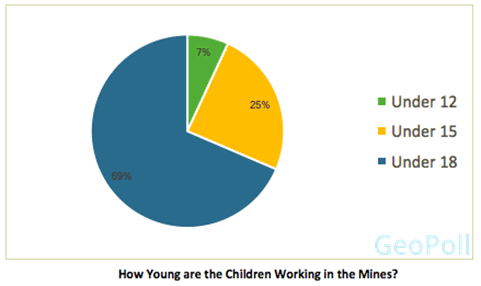- Contents
“Their place is at school, not in the mines”, a woman who works in the gold mines in the North Kivu province of the Democratic Republic of Congo (DRC) told us via SMS when we asked if she had seen children working in the mines.

On October 26 2016, we administered a survey via SMS to ask residents of certain provinces in DRC what their experiences are working in the mines. Our primary goal was to hear from people directly to quantify issues, to ask them their opinions on what should be done about problems, and to demonstrate that using SMS is a viable form of capturing worker experiences in global supply chains. The effort to poll Congo’s miners, was motivated in part by The Post’s investigation this year of Congo’s cobalt trade, which found dangerous, at times deadly, work conditions and the presence of child workers.
The DRC is the second largest country by geographical area in Africa with a population of more than 80 million. It is also extremely rich in natural resources. Many of the minerals that are used to make our smart phones, laptops and car batteries are mined in the DRC. However, the U.S. Department of Labor has also found that many of these minerals used in the manufacture of electronics, including others such as diamonds and gold could be mined using child and forced labor.
Perhaps ironically they received and responded to the survey using their mobile phones, the components of which were probably mined under the same questionable circumstances. However, with high rates of mobile penetration in the DRC and other countries that produce goods and materials consumed in the West, feature phones are allowing for quicker data collection—and most importantly facilitating swift intervention and response.
